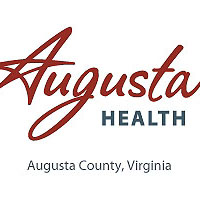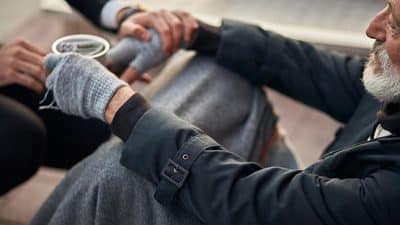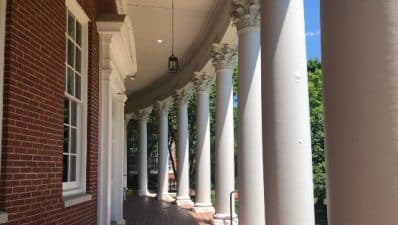The house call is making a comeback, and changes in medical technology are enabling doctors to take the power of the hospital with them to the living rooms of homebound seniors.
“The level of care that I can provide in the home is at times superior to what I can do in the office. A lot of that is because I really know what’s going on with a patient in the home, where they live. You get a better understanding of their whole environment,” said Dr. Thomas Shapcott, the medical director of the Augusta Health Medical House Call Program, which he launched in August as an outreach to homebound seniors in Augusta County, Staunton and Waynesboro.
The homebound senior population is growing as baby boomers hit retirement age. It is estimated that 6 to 10 percent of the over-65 population is considered homebound – those for whom leaving the home isn’t recommended due to a medical condition, have a medical condition that keeps them from leaving home without help (using a wheelchair or walker, needing special transportation or getting help from another person), and leaving home takes considerable and taxing effort.
Fifty percent of seniors 75 and over who don’t live in a nursing home or assisted-living facility are homebound, according to studies.
This translates to roughly 1,000 homebound seniors in Augusta-Staunton-Waynesboro with an array of medical needs likely not being met because of issues with mobility.
Shapcott, in private practice in family medicine in Staunton for 30 years, “realized this was a missing piece to the healthcare puzzle in this area” and “set out on a mission to try to fix this problem as a last career goal.”
The Augusta Health program is a “new twist” on an old paradigm, Shapcott said. In 1960, about 40 percent of physician visits were by house call, “and it was mostly because of problems with mobility, getting out and getting to the doctor, so the doctor came to you,” Shapcott explained. By 1980, only about 1 percent of physician calls were by house visits.
With seniors now the fastest-growing U.S. population demographic, “you’ve got this mobility issue again where folks can’t get to the doctor, and unfortunately, in a lot of areas, this area included, when you became homebound, you really kind of were not going to get the care that you needed,” Shapcott said.
It’s a vicious cycle for homebound seniors with chronic medical problems.
“They can’t get into the office for care, so they wait until they’re so bad that they end up in the emergency room, or worse than that, they end up in the hospital,” said Shapcott, and the issues aren’t over at admission.
“Another problem along those lines is if patients are hospitalized, and stabilized and sent home, over the past decade the rate of readmission to the hospital within 30 days is somewhere around 20 percent. So these people go home, they wouldn’t get care, no doctors would be coming to see them in the home, and they end up back in the hospital.
“Those 30-day readmissions, early readmissions, we call them, are felt to be something that is addressable, fixable,” Shapcott said.
A big reason for that is Shapcott on a house call in 2016 can do a lot more than his predecessor could do in the 1960s.
“We can provide a very high level of care in the home. That would include laboratory testing of blood work, it would include things like electrocardiograms. I particularly have an electrocardiogram that fits in my laptop USB port. Probably one of the best EKG machines that I’ve ever worked with in the past 30 years. We can do all sorts of ultrasounds, heart tests, like echocardiograms, different types of studies. With a laptop, we can access a patient’s records right there. We are connected to the pharmacies, so we can do electronic prescribing. The level of care is pretty good,” Shapcott said.
Details: Augusta Health Medical House Call Program
If you think you need our help, discuss this with your medical doctor first.
- A phone call to our office by you or your doctor will get things started. Our staff will determine if you are right for the program. If you are in the hospital the medical team there will help you with arrangements.
- Next, we will need a signed agreement by you and your doctor requesting entry into the program.
- If you are entered into the program we then begin your care with an initial house call.
- You will be cared for by our House Call Team. A physician will be directly responsible for your care but assisted by other clinicians as needed. The team will arrange for any additional services that will help with your medical care at home.
More information on the Augusta Health Medical House Call Program: click here.











